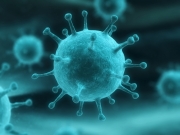JAK DZIAŁA UKŁAD ODPORNOŚCIOWY?
Układ odpornościowy, inaczej nazywany system immunologicznym, to zespół uorganizowanych narządów, komórek oraz procesów biochemicznych, które są zdolne do obrony organizmu przed czynnikami szkodliwymi i obcymi. Czynnikiem takim (antygenem) może być bakteria, wirus, komórka pierwotniaka, czy grzyba, ale również alergen (np. pyłki), substancja chemiczna lub ciało obce (np. ziarno piasku w oku). W narządach układu odpornościowego (grasica, śledziona) oraz w gruczołach i węzłach chłonnych produkowane i aktywowane są specjalne komórki, które umieją rozpoznawać i zwalczać antygeny. Są to np. limfocyty, makrofagi, czy granulocyty. Niektóre z tych komórek wytwarzają dodatkowo specjalne substancje, które znakują, przytrzymują lub niszczą wrogie elementy. Wśród najważniejszych znajdują się immunoglobuliny (przeciwciała) oraz interferon.
Wspaniałą cechą układu odpornościowego jest zdolność uczenia się. Jeśli raz poradzi sobie z jakimś antygenem (np. wirus ospy), jako pozostałość tej walki w krwi krążą przeciwciała. Ich obecność w organizmie sprawi, że gdy dojdzie do kolejnego kontaktu z ospą, organizm dużo szybciej i łatwiej poradzi sobie z chorobą. Właśnie na tym mechanizmie opierają się szczepienia ochronne, które są niczym innym, jak „kontrolowanym uczeniem się” układu odpornościowego.
TRENING CZYNI MISTRZA
Udowodniono, że system immunologiczny jest tym sprawniejszy im więcej „trenuje”. Jeśli sytuacja zmusza go do aktywności i nie jest „bezczynny” - jego zdolności i skuteczność wzrastają. Jednak, aby trenować, potrzebny jest mu kontakt z antygenami. Stała obecność ograniczonej puli bakterii i wirusów w organizmie jest swoistą „szkółką”. Dlatego właśnie zbyt częste stosowanie antybiotyków osłabia odporność. Gdy zarazki wybija chemia, komórki odpornościowe nie mają na czym „ćwiczyć”. Słabo „wytrenowane” nie będą w stanie skutecznie zadziałać, gdy okaże się to konieczne.
CZYM JEST IMMUNOSTYMULACJA?
Tym mianem określa się celowe zabiegi, które pobudzają czynność i funkcje układu odpornościowego. Skutecznymi immunostymulatorami są np. probiotyki. To obce komórki, na których odporność uczy się rozpoznawać „kto jest obcy, a kto nasz”. Podobną funkcję pełnią drożdże, czy wyizolowane z ich ścian β-glukany. Inną znaną grupą substancji, które pobudzają układ immunologiczny są zioła. Zawarte w nich związki mają zdolność aktywowania narządów, w których produkowane są limfocyty i makrofagi. Pobudzają też komórki układu odpornościowego do wydzielania substancji ochronnych, np. interferonu.
powrót



























